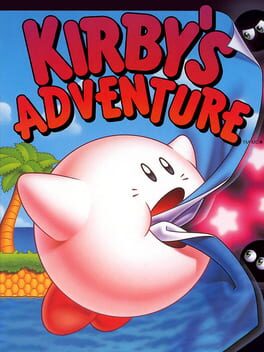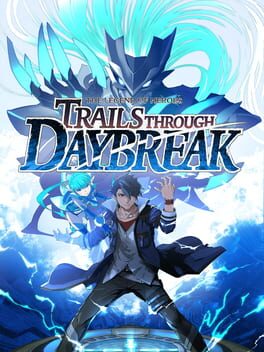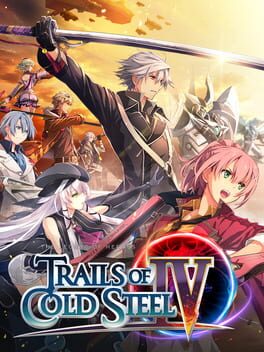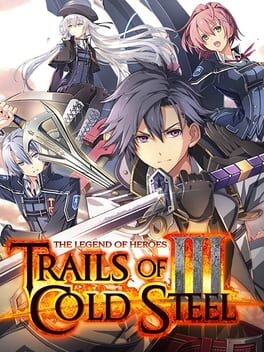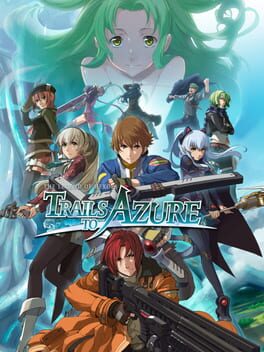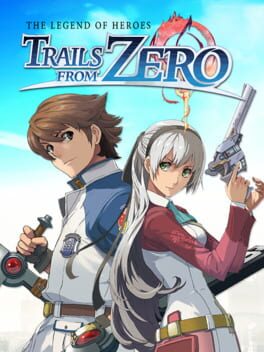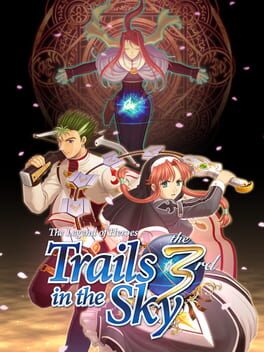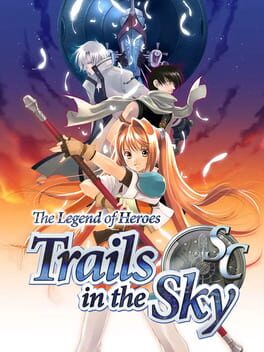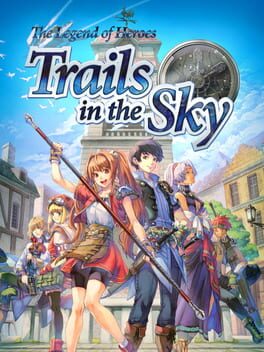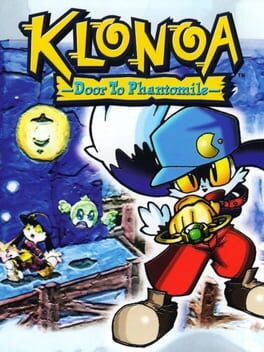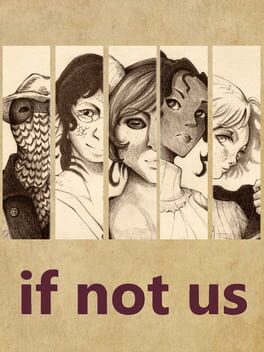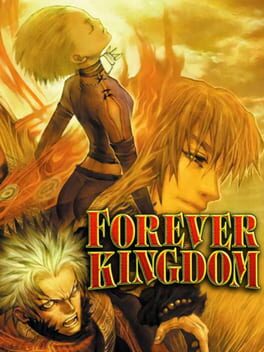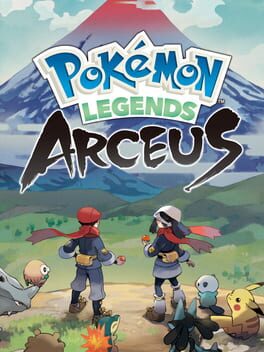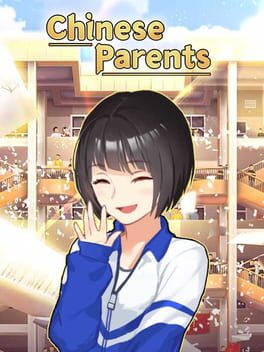MelosHanTani
BACKER
1993
I really like the density and variety of enemy placements when playing this game ability-less and with minimal floating, and on 3-health mode. There's something fun about the pacing of boss fights where it's not about constantly trying to get sword slashes or megaman pews in, but knowing when a boss attack will spawn a suckable star, and how to safely reach it, and THEN how to successfully hit the enemy with it.
Kinda want to go pick up the GBA remaster now..
I think there's a good, strong contrast between playing this with restrictions, versus playing with restrictions in the more kinda-bland-stages-and boss-difficulty-focus that kirby games fossilized into from Dream Land 2/3 onwards (that Forgotten Land slightly does try to move away from, although not successfully).
Kinda want to go pick up the GBA remaster now..
I think there's a good, strong contrast between playing this with restrictions, versus playing with restrictions in the more kinda-bland-stages-and boss-difficulty-focus that kirby games fossilized into from Dream Land 2/3 onwards (that Forgotten Land slightly does try to move away from, although not successfully).
2017
Played in Japanese on PS4. Got partway through the Quatre chapter (in the science town).
The game uses the classic "cast of 8" JRPG ensemble, characters introduced each chapter. I think this game is too long (I'm 2-3x as slow playing in Japanese due to the amount and difficulty of reading here), though part of that is exhaustion with playing in a second language. It's an 60-80 hour RPG with regular timing.
As a Trails fan (who frustratedly put up with the entire ho-hum Cold Steel series), Kuro makes some nice and positive moves for the series. The lead, Van, seems to actually have a canon romance, there isn't any creepy harem dating shit, and other characters seem to have romances of their own as well as interesting ties to organizations or their home cities.
I love the battle system changes - most of the time you can just hack away in dungeons, and more fast-paced Trails-y turn-based combat feels really good! I got the sense that it's easier overall than past games, but I play on Normal difficulty so who knows. That being said, there isn't any real tension in the dungeons. It mostly feels like padding before the next plot beat.
I still feel like the Massive Countries within the Kuro arc has similar problems to Cold Steel - you get a pretty disjointed sense of the entire world, and things start to feel cyclic/repetitive after a while.
Well, I'm not sure if I'll finish Kuro 1, but I'll probably still try out Kuro 2 (or at least watch the series to the end...what's gonna happen??)
The game uses the classic "cast of 8" JRPG ensemble, characters introduced each chapter. I think this game is too long (I'm 2-3x as slow playing in Japanese due to the amount and difficulty of reading here), though part of that is exhaustion with playing in a second language. It's an 60-80 hour RPG with regular timing.
As a Trails fan (who frustratedly put up with the entire ho-hum Cold Steel series), Kuro makes some nice and positive moves for the series. The lead, Van, seems to actually have a canon romance, there isn't any creepy harem dating shit, and other characters seem to have romances of their own as well as interesting ties to organizations or their home cities.
I love the battle system changes - most of the time you can just hack away in dungeons, and more fast-paced Trails-y turn-based combat feels really good! I got the sense that it's easier overall than past games, but I play on Normal difficulty so who knows. That being said, there isn't any real tension in the dungeons. It mostly feels like padding before the next plot beat.
I still feel like the Massive Countries within the Kuro arc has similar problems to Cold Steel - you get a pretty disjointed sense of the entire world, and things start to feel cyclic/repetitive after a while.
Well, I'm not sure if I'll finish Kuro 1, but I'll probably still try out Kuro 2 (or at least watch the series to the end...what's gonna happen??)
I played most of this on Switch and then watched the final dungeon.
Unsurprisingly I was exhausted on the Erebonia setting at this point, the game still has a mostly airship/on-rails and disappointing portrayal of the country. It was a nice decision to start the game with rescuing Rean, but again the characters/writing really didn't make that very interesting.
I can't remember what happened for most of the game, but when they all go to Mishelam at the end before the final missions, that was actually a nice sendoff to the series and characters.
Unsurprisingly I was exhausted on the Erebonia setting at this point, the game still has a mostly airship/on-rails and disappointing portrayal of the country. It was a nice decision to start the game with rescuing Rean, but again the characters/writing really didn't make that very interesting.
I can't remember what happened for most of the game, but when they all go to Mishelam at the end before the final missions, that was actually a nice sendoff to the series and characters.
I played about 15 hours of this then skimmed the rest on YouTube. I think it was a good decision to limit the cast size, but the instructor/teacher moe stuff is really boring and I didn't think any of the characters had interesting development. Rean is an awful character.
The Sky callbacks are nice, but really, fictional characters should just... not reappear... it's awkward because their writing is worse, and even more caricatured feeling than it was in the original Sky. I know the whole "big same universe" crossovers are a cool part of trails, but...
Visiting Hamel was kind of interesting. Idk. I feel like there were a lot of possible points the writing could have been cool (Juna being from Crossbell, characters reflecting on Hamel), but the truth is that almost nothing seems to matter any more. Every single villain just gets redeemed, entire war crimes get excused, the game is more or less mostly a pile of stakeless JRPG fluff with some nice moments here and there.
The Sky callbacks are nice, but really, fictional characters should just... not reappear... it's awkward because their writing is worse, and even more caricatured feeling than it was in the original Sky. I know the whole "big same universe" crossovers are a cool part of trails, but...
Visiting Hamel was kind of interesting. Idk. I feel like there were a lot of possible points the writing could have been cool (Juna being from Crossbell, characters reflecting on Hamel), but the truth is that almost nothing seems to matter any more. Every single villain just gets redeemed, entire war crimes get excused, the game is more or less mostly a pile of stakeless JRPG fluff with some nice moments here and there.
A fun RPG with an okay cast, although you can really feel the series shifting more towards a more recent type of anime RPG moe. None of the characters really left an impression on me, although I recall some nice moments with Lloyd and Elie. Honestly, I think Zero marks the point in which Trails games stopped really being that interesting (although I did enjoy Kuro) and I should have played something else.
Battle system is 'better' than Sky, but I still didn't care for it. It was kind of cool learning about Crossbell, but I thought the way you travel throughout the world felt kind of like an awkward in-between of Sky and the terrible pacing of Cold Steel.
Battle system is 'better' than Sky, but I still didn't care for it. It was kind of cool learning about Crossbell, but I thought the way you travel throughout the world felt kind of like an awkward in-between of Sky and the terrible pacing of Cold Steel.
Kevin and Ries's story is nice and well done, I love the bonus content and emotional wrap-ups we get for all of Sky's other characters. It's an amazing sendoff to the Sky series and sets up the rest of the trails games nicely (even if those later games aren't that great)
Gameplay-wise, the game is a bunch of long dungeons, some REALLY sprawling and maze-like. I was already pretty sick of the battles by Sky 2, so I wasn't really into them here, either. Thematically, I did like the weird, distorted dungeons that were warped versions of areas in Sky, but playing through them was just kinda whatever...
Love some of the music!
Gameplay-wise, the game is a bunch of long dungeons, some REALLY sprawling and maze-like. I was already pretty sick of the battles by Sky 2, so I wasn't really into them here, either. Thematically, I did like the weird, distorted dungeons that were warped versions of areas in Sky, but playing through them was just kinda whatever...
Love some of the music!
(Spoilers)
Not as good overall as Sky 1 (retraveling over Liberl gets a little boring, the Ouruboros stuff instantly feels repetitive, visiting each tower gets repetitive...I still don't really care for the battle system), but the main cast stuff is good and the final chapter was really cool by bombastic JRPG standards. Orbal shutdown phenomenon was interesting too, letting you revisit the world.
A nice end to most of the threads of Sky 1, but the emotional threads feel more tied up in Sky 3.
Not as good overall as Sky 1 (retraveling over Liberl gets a little boring, the Ouruboros stuff instantly feels repetitive, visiting each tower gets repetitive...I still don't really care for the battle system), but the main cast stuff is good and the final chapter was really cool by bombastic JRPG standards. Orbal shutdown phenomenon was interesting too, letting you revisit the world.
A nice end to most of the threads of Sky 1, but the emotional threads feel more tied up in Sky 3.
trails in the sky! trails in the sky! a fun, kingdom-sprawling, feet-on-the-ground explorative and npc dialogue/story-focused jrpg with a nice light romance plot, and plenty of problematic 2000s jrpg tropes (oh well)
For better or worse, I've played (Though not completed) all the trails games, and Sky 1 is still the best.
What I like the most about trails in the sky is its slow pacing - the way you get to know each town, read the newspapers, setting up many of the emotional plot beats for Sky 2. Joshua and Estelle are journeying on foot to get better acquainted with their little country of Liberl, and it really makes sense and feels good to walk from place to place, no fast travel or flying around.
If you like more lighthearted JRPGs I'd check Trails in the Sky out. (If the first hour doesn't hook you I'd drop the entire series)
For better or worse, I've played (Though not completed) all the trails games, and Sky 1 is still the best.
What I like the most about trails in the sky is its slow pacing - the way you get to know each town, read the newspapers, setting up many of the emotional plot beats for Sky 2. Joshua and Estelle are journeying on foot to get better acquainted with their little country of Liberl, and it really makes sense and feels good to walk from place to place, no fast travel or flying around.
If you like more lighthearted JRPGs I'd check Trails in the Sky out. (If the first hour doesn't hook you I'd drop the entire series)
Definitely weird this game came out 25 years ago! It's a shame the creative 2D platformer got more or less abandoned by the AAA industry in favor of perfunctory puzzle platformers (Limbo, lol), metaphor platformers (... I'll let you imagine what I'm referring to..).
Somehow the precision here reminds me of Crash Bandicoot. The level structures remind me of the longer levels in Yoshi's Island (the throwing does, too), and the quick escalation of the drama remind me of the progression within shmups and the areas you visit.
Visually/sonically creative, I liked the dynamic music moments throughout.
I found the level design to be a bit all over the place - the lives system feels very of the time, it adds a lot of pointless tension, especially to boss fights. You can lose lives pretty fast to slip ups (bumped into a pit, etc), but I never actually had a game over on my playthrough.
At its best moments, chaining the double jumps feels fun. At its worst, the tiny windows and overly nuanced controls of performing these moves got in the way. The game's levels sometimes use puzzles, which can be interesting, but in many cases execution is difficult despite the solution being obvious. Not to mention the awkward jutting in of the health system and slowly being whittled down as you try to execute a puzzle correctly.
Many of the puzzles have cycles that slowly run out of sync (e.g. an obstacle and the enemy you need to grab), which can make figuring out proper timing more frustrating than it needs to be.
I like to joke that the instant a platformer has the tiny, 1-tile width platforms, it's run out of ideas - a moment which came a bit early in Klonoa IIRC.
Many of the later levels run way too long, 15-25 minutes on a first playthrough. I think the moveset just isn't versatile enough for this game to be that interesting to move around in... it honestly felt kind of like a exploratory platformer + puzzles + perfunctory precision platforming. However, the overall arc of the game feels great - reminds me of recent longform indies. The story is simple and cheaply sentimental, but the way the 12 stages escalate drama and take you through its world was fun and what kept me going.
The problem here is kind of in the moveset... I think the level designers did a good job with what they had to work with (honestly, an enemy-dependent double jump and a near-useless flutter aren't much). The levels are visually creative, though the camera does move too much.. some of the middle levels made me a bit sick.
I do appreciate the development team's dedication to making such a tightly-knit game - the density of just, level, cutscenes, bosses, is kind of neat and I like how there's not too much filler.
Somehow the precision here reminds me of Crash Bandicoot. The level structures remind me of the longer levels in Yoshi's Island (the throwing does, too), and the quick escalation of the drama remind me of the progression within shmups and the areas you visit.
Visually/sonically creative, I liked the dynamic music moments throughout.
I found the level design to be a bit all over the place - the lives system feels very of the time, it adds a lot of pointless tension, especially to boss fights. You can lose lives pretty fast to slip ups (bumped into a pit, etc), but I never actually had a game over on my playthrough.
At its best moments, chaining the double jumps feels fun. At its worst, the tiny windows and overly nuanced controls of performing these moves got in the way. The game's levels sometimes use puzzles, which can be interesting, but in many cases execution is difficult despite the solution being obvious. Not to mention the awkward jutting in of the health system and slowly being whittled down as you try to execute a puzzle correctly.
Many of the puzzles have cycles that slowly run out of sync (e.g. an obstacle and the enemy you need to grab), which can make figuring out proper timing more frustrating than it needs to be.
I like to joke that the instant a platformer has the tiny, 1-tile width platforms, it's run out of ideas - a moment which came a bit early in Klonoa IIRC.
Many of the later levels run way too long, 15-25 minutes on a first playthrough. I think the moveset just isn't versatile enough for this game to be that interesting to move around in... it honestly felt kind of like a exploratory platformer + puzzles + perfunctory precision platforming. However, the overall arc of the game feels great - reminds me of recent longform indies. The story is simple and cheaply sentimental, but the way the 12 stages escalate drama and take you through its world was fun and what kept me going.
The problem here is kind of in the moveset... I think the level designers did a good job with what they had to work with (honestly, an enemy-dependent double jump and a near-useless flutter aren't much). The levels are visually creative, though the camera does move too much.. some of the middle levels made me a bit sick.
I do appreciate the development team's dedication to making such a tightly-knit game - the density of just, level, cutscenes, bosses, is kind of neat and I like how there's not too much filler.
2018
Cool interactive fiction that is the fallout of what one could see as an large-scale JRPG where the heroes failed. Instead of being told from one perspective, we get to hear about the failure of this quest from 5 different perspectives (each told with a different grammar of interactive fiction). What results is a number of conflicting, emotionally varied stories, revealing different facets of characters. A cool experimental work!
2001
It's arguably a terrible game but it's really memorable the way its kinda melodramatic story, at times really good art direction and linear flow come together. Strong atmosphere despite uh... spectacularly bad fundamentals.
--
A shockingly bad action game that somehow is worse to play than Evergrace 1. It's a shame because the Japanese voice acting and story make it pretty fun to follow.
A notoriously unsolved problem in 3D is how to handle 3rd-person combat and aiming. It's very hard to judge depth from enemies and where attacks are going to hit. The modern approach, of course, is lock-on: this has the effect of hackily flattening the game into 2.5D combat, where the other problems (judging depth/attacks) are further band-aided by the use of dodge rolls and iframes, combat becoming a visual Simon-Says.
Forever Kingdom (Evergrace 2 in Japanese) has no lock-on, it also has tiny weapon hitboxes. You're constantly whiffing your attacks, having to switch out weapons when one of your attacks heals the enemy.
These problems aren't a game-breaker - they plagued Evergrace 1. This game is built around using elemental skill combos by triggering two other NPCs' attacks - but you can't line up their attacks that easily since they have AI which tends to stand back and guard.
That still makes for a playable game, but where I draw the line is how poorly the camera is handled in interiors. I have programmed cameras for 3D games before (including a technical platformer) so I'm aware of how tricky it can be, but the way the camera is handled in this game is actually broken. The game seems to have some kind of prediction system of trying to find the best 'view' for a scene - the result is that when walking through corridors or empty areas, the camera will just start gradually swinging or jutting forward. The result of course, is motion sickness!
The game expects you to use R2 to swing the camera forward - this is what Evergrace did, and while clunky (The R-stick is right there... why not use it??) it was fine. In Forever Kingdom, almost always after using R2, the game will just randomly swing off to some other direction.
There's also screenshake from a lot of stuff for no reason. The worst offender is an early dungeon where a troll is rampaging about - never mind that you can't even evade this troll - but every time it steps (4 times a second), the screen shakes a lot - which of course is more motion sickness!
---
Other design quirks - half of the treasure chests are empty, or trapped with a little imp that latches onto you for poison damage (You can't get it off or attack in this state). Enemies drop chests with collision, sometimes boxing you into a corner. 90% of these chests contain nothing.
Stores are accessed via a save point. In the store is 6 small stores, staffed by identical tiny blue elephants. Sometimes the elephants aren't there. So you can't buy headpieces at one save point, while you can at another... furthermore, the music cuts out whenever you open a shop menu or the pause menu, which is frightening...
Anyways, if you don't use R2 too much the motion sickness is manageable, but it's still a pretty rough game (and there's a bunch of other small complaints...) Worth trying if you liked Evergrace 1 (Forever Kingdom does have some great music and visual vibes), but if not then I would just pass!
--
A shockingly bad action game that somehow is worse to play than Evergrace 1. It's a shame because the Japanese voice acting and story make it pretty fun to follow.
A notoriously unsolved problem in 3D is how to handle 3rd-person combat and aiming. It's very hard to judge depth from enemies and where attacks are going to hit. The modern approach, of course, is lock-on: this has the effect of hackily flattening the game into 2.5D combat, where the other problems (judging depth/attacks) are further band-aided by the use of dodge rolls and iframes, combat becoming a visual Simon-Says.
Forever Kingdom (Evergrace 2 in Japanese) has no lock-on, it also has tiny weapon hitboxes. You're constantly whiffing your attacks, having to switch out weapons when one of your attacks heals the enemy.
These problems aren't a game-breaker - they plagued Evergrace 1. This game is built around using elemental skill combos by triggering two other NPCs' attacks - but you can't line up their attacks that easily since they have AI which tends to stand back and guard.
That still makes for a playable game, but where I draw the line is how poorly the camera is handled in interiors. I have programmed cameras for 3D games before (including a technical platformer) so I'm aware of how tricky it can be, but the way the camera is handled in this game is actually broken. The game seems to have some kind of prediction system of trying to find the best 'view' for a scene - the result is that when walking through corridors or empty areas, the camera will just start gradually swinging or jutting forward. The result of course, is motion sickness!
The game expects you to use R2 to swing the camera forward - this is what Evergrace did, and while clunky (The R-stick is right there... why not use it??) it was fine. In Forever Kingdom, almost always after using R2, the game will just randomly swing off to some other direction.
There's also screenshake from a lot of stuff for no reason. The worst offender is an early dungeon where a troll is rampaging about - never mind that you can't even evade this troll - but every time it steps (4 times a second), the screen shakes a lot - which of course is more motion sickness!
---
Other design quirks - half of the treasure chests are empty, or trapped with a little imp that latches onto you for poison damage (You can't get it off or attack in this state). Enemies drop chests with collision, sometimes boxing you into a corner. 90% of these chests contain nothing.
Stores are accessed via a save point. In the store is 6 small stores, staffed by identical tiny blue elephants. Sometimes the elephants aren't there. So you can't buy headpieces at one save point, while you can at another... furthermore, the music cuts out whenever you open a shop menu or the pause menu, which is frightening...
Anyways, if you don't use R2 too much the motion sickness is manageable, but it's still a pretty rough game (and there's a bunch of other small complaints...) Worth trying if you liked Evergrace 1 (Forever Kingdom does have some great music and visual vibes), but if not then I would just pass!
I think it's a step in the right direction for Pokemon, but it uncritically combines too many pre-existing open world design patterns (repetitive tasks, an overall game pacing that feels predictable) with old pokemon design patterns. The Pokemon battle system is still as flat as it's always been (Competitive pokemon aside), the game quickly falls into a pattern, and it's a really weird Gameplay Texture to accumulate hundreds of unused pokemon in your pastures because you're trying to fill out entries. I think the battles need to be totally reimagined if Pokemon is to ever become a great game. The same goes for pokemon capturing. Maybe Pokemon can look to a game like Bugsnax for more creative ways of capturing?
I thought the JRPG direction was a good idea for the story, and some of the quests almost reminded me of Yakuza quests at time (a focus on aspects of a big town - e.g. the quest finding Pichu in someone's house). Still, it's weighed down by perfunctory-feeling writing... I don't think Pokemon needs to feel like it's compromising itself between a child and adult audience, most of its fans are adults by now. This doesn't mean a darker story, but one that actually... has some teeth and theme to it? Well, to the game's credit, maybe it Does go there (especially since we're the Galaxy Clan).
I only played 10 hours and then a bit of another person's file who was much further - the various mounts and ways you unlock the world metroidvania-style were neat!
Well idk. Maybe I'll finish this game later, I don't dislike it or anything!
I thought the JRPG direction was a good idea for the story, and some of the quests almost reminded me of Yakuza quests at time (a focus on aspects of a big town - e.g. the quest finding Pichu in someone's house). Still, it's weighed down by perfunctory-feeling writing... I don't think Pokemon needs to feel like it's compromising itself between a child and adult audience, most of its fans are adults by now. This doesn't mean a darker story, but one that actually... has some teeth and theme to it? Well, to the game's credit, maybe it Does go there (especially since we're the Galaxy Clan).
I only played 10 hours and then a bit of another person's file who was much further - the various mounts and ways you unlock the world metroidvania-style were neat!
Well idk. Maybe I'll finish this game later, I don't dislike it or anything!
2018
The game has a sort of subtle sense of humor that was interesting. Maybe a bit stereotyped... I mean, the name of the game... has a bit of those early 2010s "Things Asian Parents Do" youtube vibes, but it's interesting as this comes from a Chinese developer.
That being said, as far as stat life sims go, it had some fun systems like the stat grid. It got tedious/boring after too many times though, and I wasn't interested enough to play the game past one generation. The girl friendship system just felt totally random, and the endings weren't that satisfying, at least the one I got. Maybe if it was a bit easier to hunt for endings or something, I don't know...
That being said, as far as stat life sims go, it had some fun systems like the stat grid. It got tedious/boring after too many times though, and I wasn't interested enough to play the game past one generation. The girl friendship system just felt totally random, and the endings weren't that satisfying, at least the one I got. Maybe if it was a bit easier to hunt for endings or something, I don't know...
